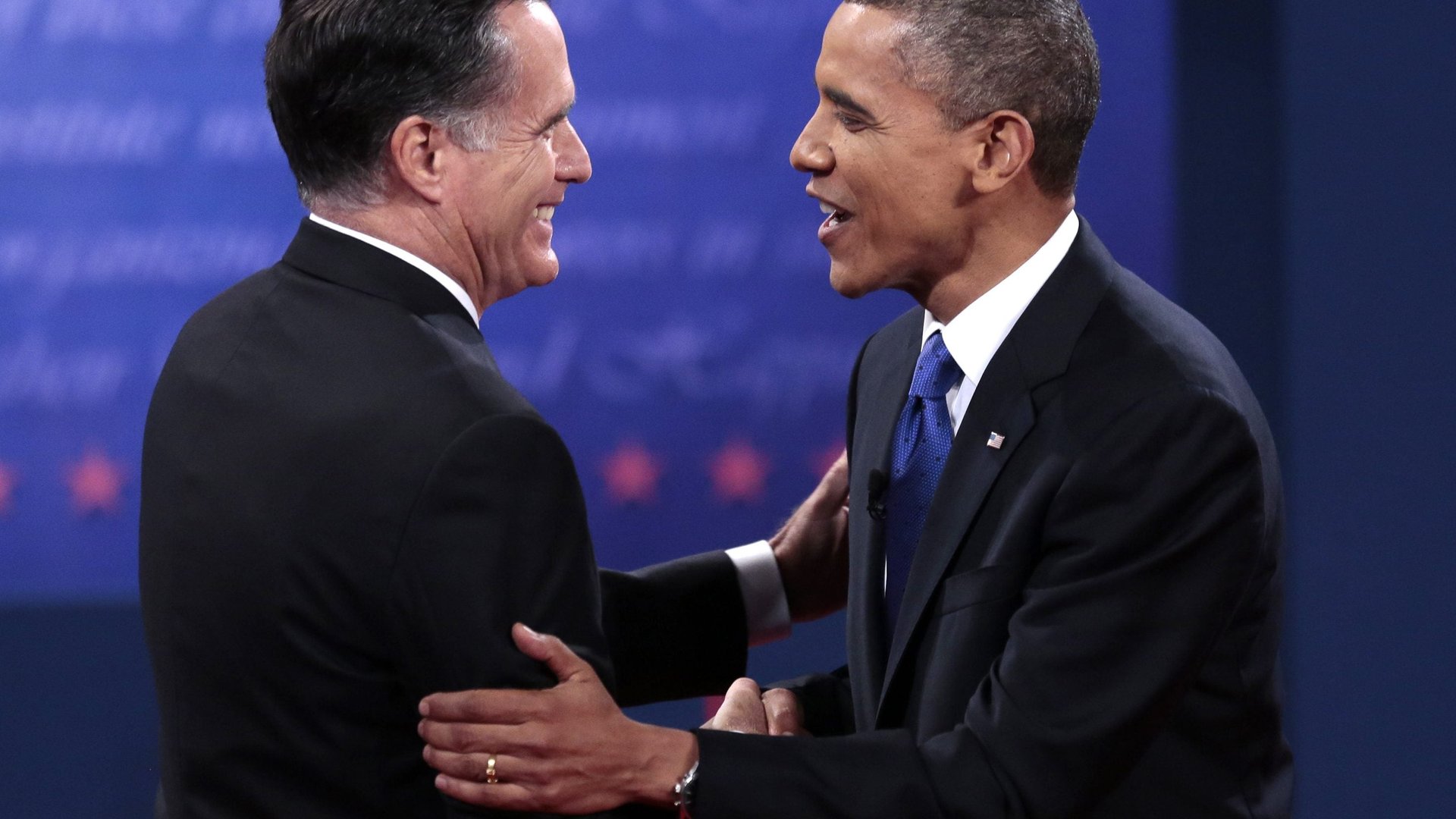Spoiler alert: Nobody will win the presidential debate
As a culture that celebrates success above all, we are obsessed with winning. We love to quantify things that were not necessarily meant to be quantified. We reach for sports metaphors to describe everything: keeping score makes it easier to understand the world around us.


As a culture that celebrates success above all, we are obsessed with winning. We love to quantify things that were not necessarily meant to be quantified. We reach for sports metaphors to describe everything: keeping score makes it easier to understand the world around us.
Why should presidential debates be any different?
Every election cycle, the press and pundits giddily anticipate the debates, ready to serve as the self-appointed arbiters who decide who has crushed their opponent. A consensus emerges in the hours or day following the debate, and it declares: Ronald Reagan out-zings Jimmy Carter; he out-jokes Walter Mondale; a drained Barack Obama loses dramatically in his first debate against Mitt Romney; he defeats Romney and his “binders full of women” in the second face-off.
The stakes are high. Debates between the major party nominees happen right before the election, and in 2012, about one in five voters made up their minds in the final month leading up to Election Day. On the one hand, candidates have a final, crucial opportunity to present their platforms to voters. On the other, debates are rare moments when they don’t have total control over their performance. The audience is huge: To use a sports analogy, this year it may reach the level of the Super Bowl, the most-watched event on American television.
But what if we didn’t insist on knowing who “won” the debate, and who “lost?” Kathleen Jamieson Hall, director of the Annenberg Public Policy Center at the University of Pennsylvania, says that the concept of determining a winner in a debate is a useless media construct. “You got 90 minutes of discourse. How do you win or lose 90 minutes of discourse? You could win a chess game, you can win a football game. You cannot win a debate.”
When there’s an athletic analogy, Jamieson says, we look for decisive moments—and that’s how the debates become portrayed after they’re first aired. Think Obama’s “you’re likable enough, Hillary” in 2008, Reagan’s “I will not make age an issue of this campaign” in 1984, Carly Fiorina’s “I think women all over this country heard very clearly what Mr. Trump said” in 2015.
“That’s one way that we’ve extinguished learning from debates: we find something that supposedly is revealing and then we play it and replay it, replay it, and the public forgets everything else that it’s learned from the debate,” Jamieson says.
Debates are not like sports, because they are not a zero-sum game, she adds. It’s possible that both candidates do well, or that both do poorly. There is no way of objectively scoring their performance against a numerical standard.
If we shouldn’t be trying to decide who won a debate, how should we be judging the debate’s outcome? Well, Jamieson says, it’s about how the candidates present their stance on issues that matter to people, and about their personal conduct. We should be posing two questions: 1) Do I agree with this person and 2) Do I trust that this person has the qualities to handle tough situations as president?
“The person who at the end of the debate has increased the audience’s comprehension of that person’s stance on important issues…has done well in a debate. The person that has demonstrated a temperament and habits of mind consistent with being an effective president has done well in a debate.”
If this election season’s debate coverage thus far is any indication, media outlets won’t resist sports metaphors or refrain from declaring winners and losers when Hillary Clinton meets Donald Trump. CNN, for example, stylized its debate-coverage previews like boxing matches, with dimmed lights, “fighter” profiles of the candidates, and “rounds…”
Hopefully, viewers will see through the press and pundit cheerleading or booing.